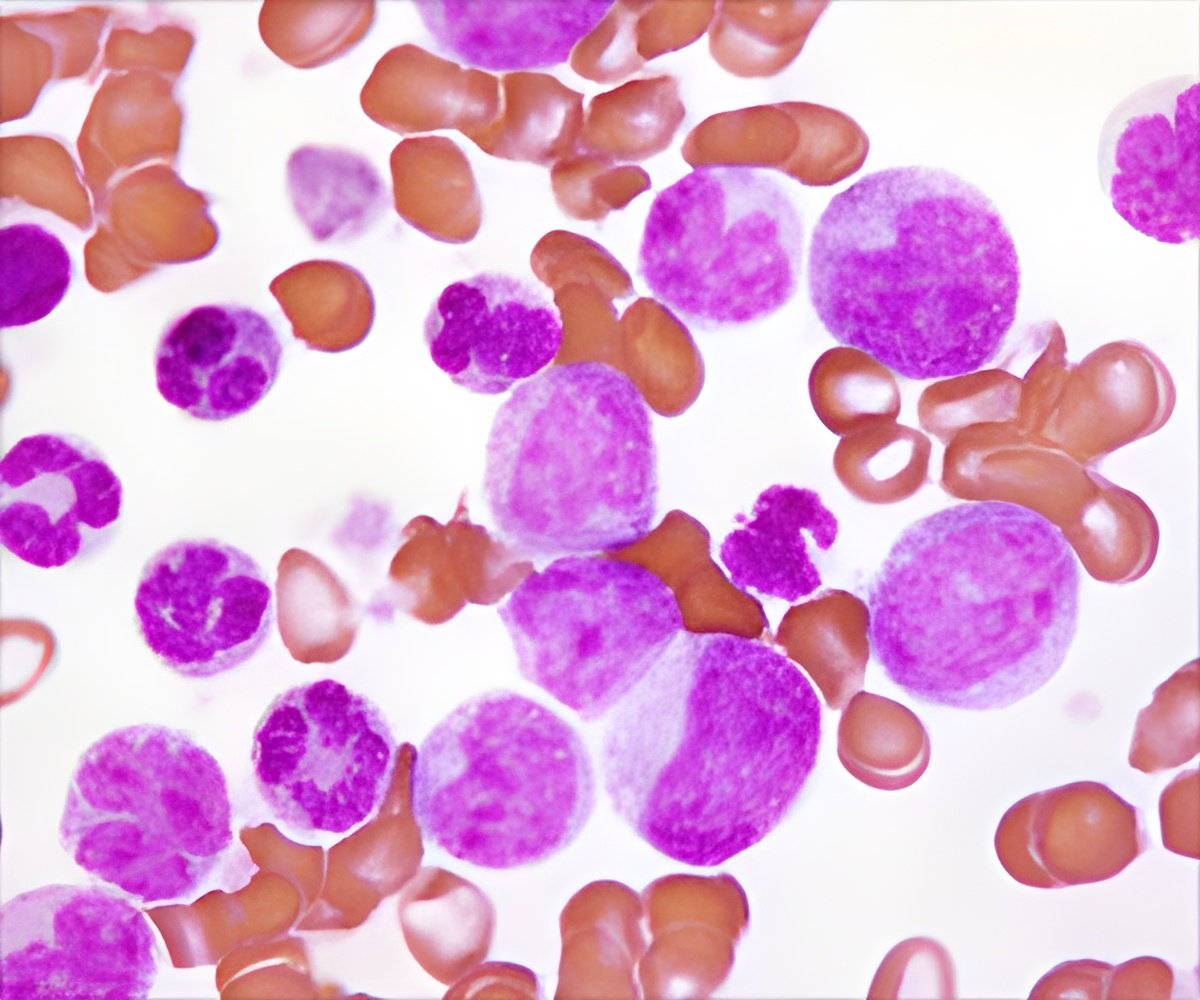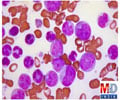Ways to inhibit the function of a key protein linked to stem cell-like behavior in terminal-stage chronic myeloid leukemia (CML) have been discovered by scientists.

CML is a blood cancer that has seen tremendous improvement in treatment outcomes following the introduction of tyrosine kinase inhibitor (TKI) drugs that specifically target the BCR-ABL fusion gene, a genetic abnormality that is characteristic of CML. However, when CML progresses to its terminal stage, known as the blast crisis phase, TKI drugs become ineffective and patients with blast crisis CML rapidly succumb to the disease.
"TKI therapy is highly effective in chronic phase CML, and enables most patients to survive many years. In contrast, patients with blast crisis CML usually succumb to their disease within one year, with most patients dying because they develop drug resistance to TKI therapy," said principal investigator Ong Sin Tiong, associate professor and head of the Laboratory of Hematologic Malignancies in the Cancer and Stem Cell Biology Program at Duke-NUS.
A subset of cells associated with blast crisis CML exhibit characteristics of self-renewing stem cells, suggesting that targeting this particularly malignant and drug-resistant population would be effective in treating blast crisis CML. The team therefore searched for novel targets that will specifically eliminate these cancer stem cells.
Through their efforts, the team identified a protein enzyme, known as the MNK kinase, that was abnormally activated in clinical samples taken from patients with blast crisis CML. Experiments conducted in the lab further unraveled how MNK kinase activation plays a critical role in the progression of CML to the blast crisis phase, and confers stem cell-like behavior on blast crisis cells.
The team tested a panel of drugs that inhibit MNK kinase activity and found that these MNK inhibitors were effective in preventing blast crisis cells from behaving like cancer stem cells in both in vitro laboratory tests and animal studies.
Advertisement
Importantly, the MNK inhibitor drugs do not appear to be toxic to normal blood stem cells, indicating that drugs targeting MNK kinases may not cause harmful side effects. Ong said he hopes the findings from this study will open new research directions in the treatment of blast crisis CML.
Advertisement
Source-Eurekalert














